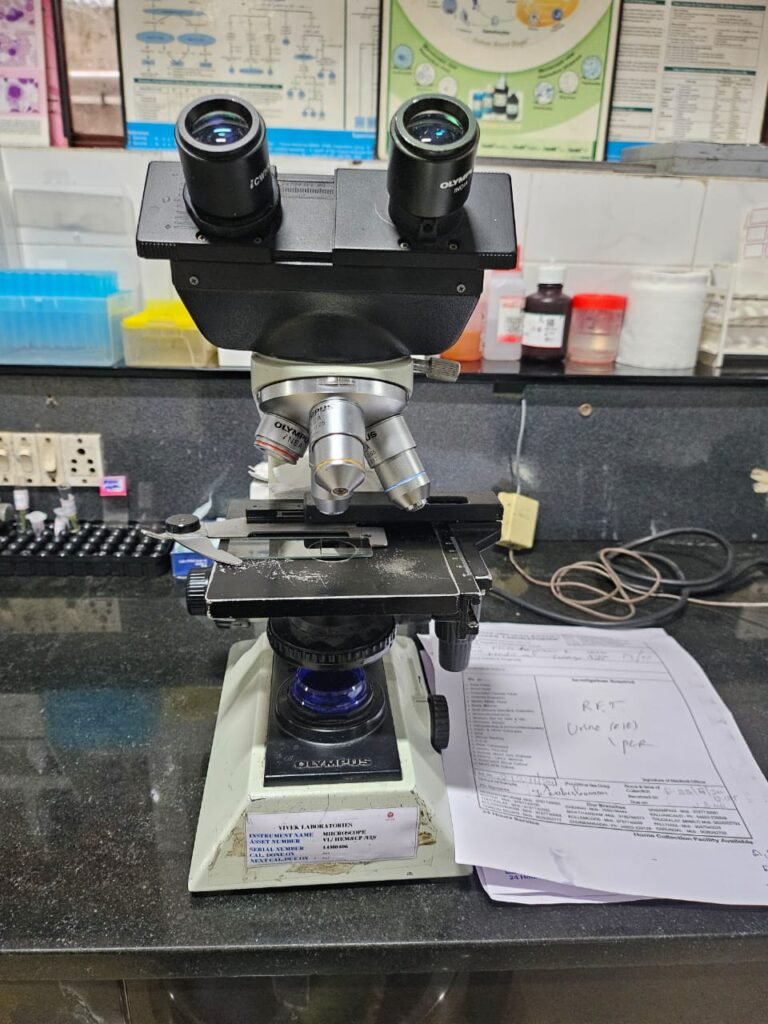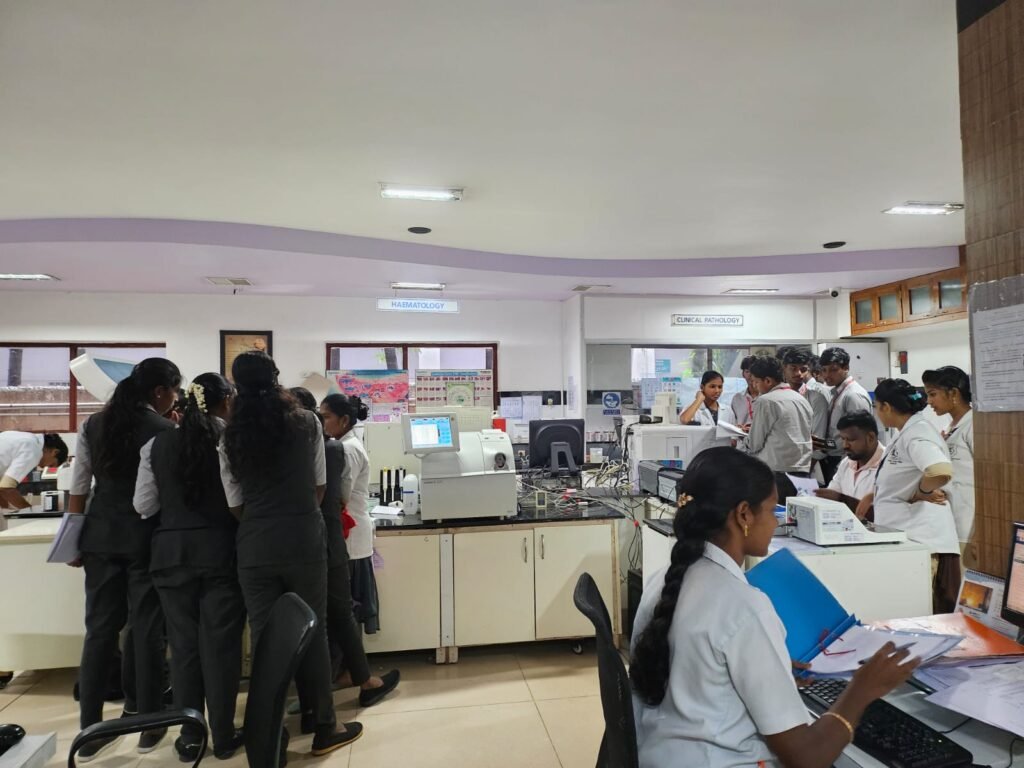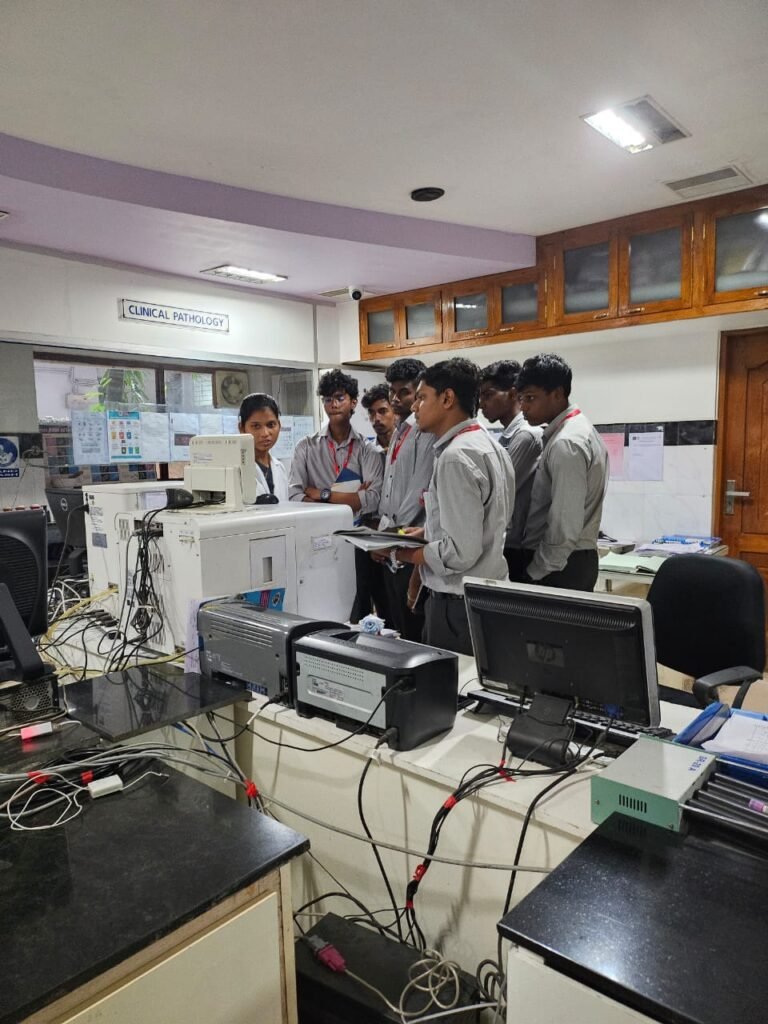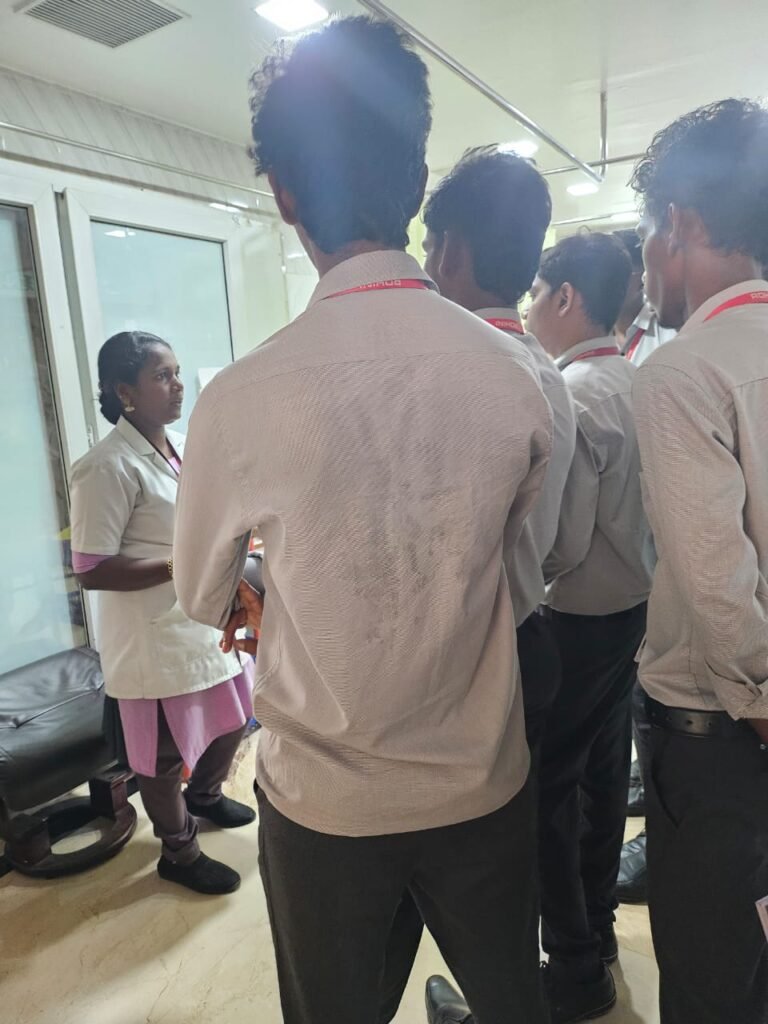The I-year B-Tech Biomedical Engineering students of RCET embarked on an educational tour to Vivek Laboratories, Nagercoil , providing them with a unique opportunity to witness the practical applications of their theoretical knowledge. The visit was organized in two batches, with the first batch visiting on May 20,2024, and the second batch on May 22,2024.
The students in the blood collection area, learned about the various methods of blood sample collection, types of tubes used for blood tests and how they are identified by their colours. This hands-on experience provided the students with insights into the importance of proper sample collection and labelling in clinical diagnostics. In the blood storage and blood separation area the students observed the centrifugation process, which separates blood into its components: plasma, red blood cells (RBCs), and platelets. They learned about the respective temperatures required for storing these components and were shown actual samples of plasma, RBCs, and platelets. Students understood the critical role of proper storage conditions in maintaining the viability of blood components for transfusions and other medical uses.At Pathology section. They observed how blood samples are further analysed and tested using various machines, tailored to meet different diagnostic needs. The experience underscored the complexity and precision required in pathological testing and the vital role of biomedical engineers in developing and maintaining these machines.At the Microbiology section, students learned about the disease-causing microbes. The staff provided an in-depth explanation of how these microbes are tested to develop new drugs and medicines, aimed at suppressing their activity within the host body. It was an intersection of microbiology and pharmacology in combating infectious diseases.The students explored the Histopathology section, where they delved into the study of DNA replication using Polymerase Chain Reaction (PCR) applications. They also learned about the preservation and analysis of cells and genetic material, gaining hands-on knowledge of working with ELISA (Enzyme-Linked Immunosorbent Assay) and ECLIA (Electrochemiluminescence Immunoassay) machines. This helped them undertand the advancements in genetic testing and molecular diagnostics.






Overall, the visit provided the students with a comprehensive understanding of various laboratory processes and the critical role of biomedical engineering in the medical field. The hands-on experience and detailed explanations from the lab faculty were invaluable in bridging the gap between theoretical knowledge and practical application, inspiring the students to pursue their studies with renewed enthusiasm and insight said Mrs.Tinu, Asistant Professor,Bio medical Engineering, RCET